
80年代人。喜歡讀書。不希望被看見的文字工作者。
These 10 Books Healed My Anxiety

When I saw Gu Chen 's essay "My 10 Favorite Books", I was very moved! However, it's not easy to pick my ten favorites (promiscuous reading is often difficult to focus on!). So from this year's monthly reading list, I chose one or two books to read and after thinking about it again and again, I decided that it was the book I liked to share, I hope there is no digression...
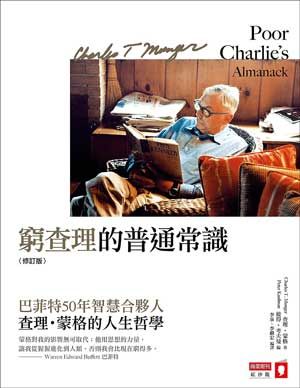
Title: Common Common Sense of Poor Charlie
Author: Charlie Munger
Nationality: American
【reason】
Before the age of 33, I didn't have a very clear concept of "investment". By the time I finished reading this rather thick (476-page) book, Poor Charlie, I was pretty sure that I temporarily figured out how to invest, manage, and view life in a "puritanical" way. Charlie Munger is like Franklin to me, disciplined and prophetic. His perceptions are not unfounded, and these judgments are largely based on the experience accumulated through extensive reading and interaction with people.
I love it, other than feeling that Charlie Munger's character is somewhat similar to mine, more realistically, I hope to find a prescription from Charlie Munger's philosophy of life to solve my financial management problems over the years. Of course, this book didn't give me any way to make money, but it was a pretty important book for me to re-examine myself.
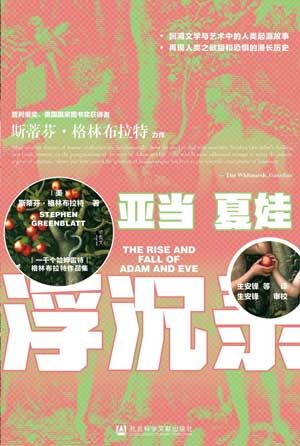
Title: The Rise and Fall of Adam and Eve
Author: Stephen Greenblatt
Nationality: American
【reason】
Stephen Greenblatt's The Rise and Fall of Adam and Eve was a big influence on me. After I sorted it out, its influence on me can be divided into three points: (1) Clarified my myths about Western religions : In the past, I didn't care much about Western religions (Judaism, Christianity, Catholicism). Although there are many friends around me who believe in religion, I basically don’t talk about religion with them. And this book provided me with the basic concept of understanding Western religions.
(2) Know the Bible: When it comes to Adam and Eve, the two "first ancestors of mankind", we will all start from the imaginative chapter of "The Bible - Genesis". The Book of Genesis is an important chapter for Western civilization. It established the most important text for the relationship between God and human beings. It also invented and adjusted the concept of "sin" for human beings (the world influenced by Christian civilization).
(3) When religion confronts science, how does religion explain the myth of explaining the world that is constantly being broken by science? This is an important starting point for Stephen Greenblatt to write this book. In the past two years, I have been particularly fascinated by the philosophy of science, and I have found many new viewpoints and similar viewpoints that I agree with from the book, such as the conservative religious situation today, or the change in the attitude of believers towards science. Overall, this book is for people who are curious about the world.
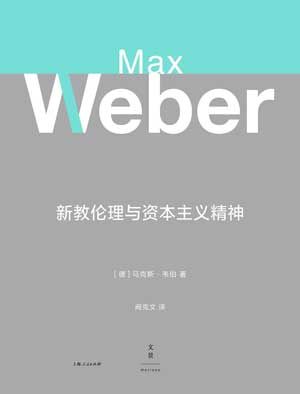
Title: Protestant Ethics and the Spirit of Capitalism
Author: Weber
Nationality: German
【reason】
I read this book because I didn't understand the formation of capitalism. After reading this book, I was surprised to find that most of my reading this year focused on the subject of Western religions, which is quite interesting. The reason I like Weber's famous book is not only because Weber takes Franklin, who I like, as his research object, but also because of his discussion of the formation of capitalism, which is very important to anyone who has read this book. The people are quite convincing! People who want to make money should read this book, and people who have a lot of money should read this book -- because Weber helped us organize and put forward a Protestant perspective and perspective on money.
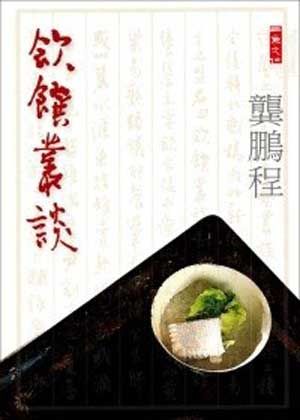
Title of the book: Talking about Drinking Food
Author: Gong Pengcheng
Nationality: Republic of China
【reason】
"Drinking Cuisine" is a book that combines seriousness and humor. Gong Pengcheng used to be a scholar I disliked very much. At that time, he was young and ignorant, and if he couldn't read, he was rudely classified as a writer and scholar (I loved Li Oufan very much at that time). Until I read "Drinking Food", I had to be impressed by Gong Pengcheng's erudition.
I am a person who likes to appreciate the beauty of food on paper, so in the process of reading "Drinking Food", I have been using my imagination to create "delicious" and "exciting". Of course, what is even more exciting is Gong Pengcheng's discussion of taboos, Chinese diet and sexuality, as well as the "fasting debate" of Buddhism and Islam (Muslims) in the Ming Dynasty. Reading this book has opened my eyes to the study of aroma, food, culture, history and so on.
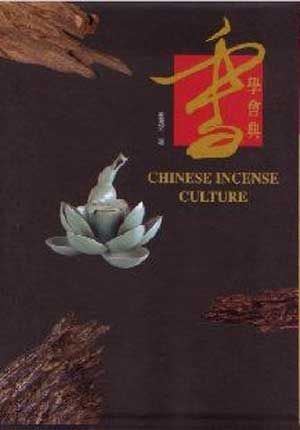
Title: The Book of Perfumery
Author: Liu Liangyou
Nationality: Republic of China
【reason】
There are only a few books on the study of agarwood. There are too few, too few, those who can systematically and brilliantly describe the study of agarwood, utensils, and incense-seeking stories. Liu Liangyou's last book, "The Classic of Incense Studies", is believed to be the "Classic of Incense Studies" that many people who study Chinese incense (incense Tao) and promote incense culture cannot bypass.
Liu Liangyou introduced the past and present life of agarwood in this "Incense Society", and also clearly outlined the business, flow, history, and inheritance of agarwood from ancient times to the present. Fragrance: Allusions and rheology of the discovery, extraction, and use of Shentanlong musk deer.
"The Classic of Perfumery" is a classic that is difficult to bypass for those who like fragrance and charm, and because it is almost out of print, it is quite difficult to find. But getting it is like getting a treasure. In addition, for me, who is collecting perfumes, Teacher Liu also clearly introduces the history and use of incense in the East ("East" as defined by Said) and the West. Happening.
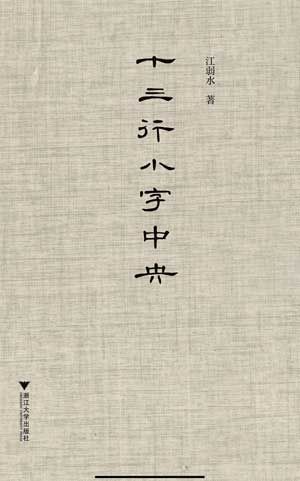
Title: Thirteen Lines Small Character Center
Author: Jiang Ruoshui
Nationality: People's Republic of China
【reason】
Continuing the ravages of COVID-19 in 2020, "Thirteen Lines of Small Characters Central" accompanied me from the end of last year to the beginning of this year. This is a funny and ironic essay. Many years ago, I came into contact with Jiang Ruoshui's "From Wang Xifeng to Potosi", but only read a few articles in a hurry. "The Central of Thirteen Lines of Small Characters" will make me fall in love with it, mainly because it enriches my understanding of literary reading and Chinese classical literature.
There are fewer and fewer scholars and writers with a tonality like Jiang Ruoshui in today's China. Scholars' essays usually have several problems: either they are too academic and the writing is blunt, and they don't know the interest of the essay, or they write the essays in a fancy way and don't understand subtraction. Thirteen Lines of Small Characters is the right scholar's essay, and the most beautiful thing I've read this year.
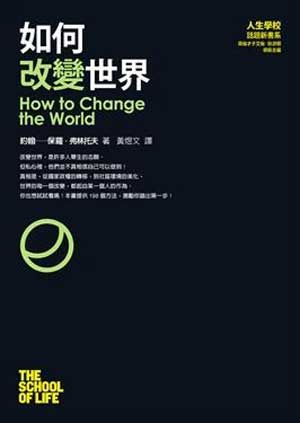
Title: How to Change the World
Author: John-Paul Flintoff
Nationality: American
【reason】
At a certain stage in life, there is always some anxiety and confusion.
I am 34 years old this year. Except for a small car, the savings are pitiful, and if you lose your job, you will go bankrupt immediately. Thinking that the rest of my life may be because I don't have a stable income to support the elderly, I can't help but feel panic. This book is a series of books curated by the British philosopher De Bolton. I was comforted by the author.
John-Paul Flintoff uses knowledge and experience to convince you that you're not worthless, and don't forget your influence—provided you make the first choice and execute the mission. What struck me about reading this book is that in one of the chapters John-Paul Flintoff asked himself, what can he do if he loses his job?
He lists the jobs he can do (without salary), this practice allows you to rediscover that you are not just a financial person, a teacher, a writer, a lawyer, because in your list of available jobs you will find that you can be a security, Cleaners, social workers, cooks, construction workers, and even bosses if you want. When I was at a loss in work and life, when I came across this book, it was like a gentle song, soothing my anxious heart.
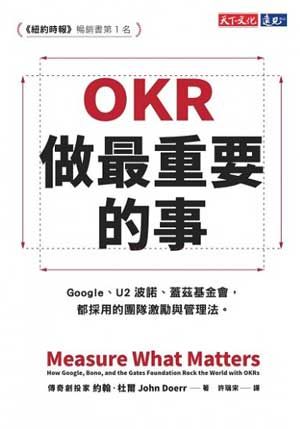
Title: OKRs: Doing the Most Important Thing
Author: John Doerr
Nationality: American
【reason】
OKR is the abbreviation of "Objectives and Key Results". Translated into Chinese, it means "objectives and key results". The difference between it and key performance indicators (KPI) is that OKR is more grounded, more close to the people, and is reflected from the bottom up. A set of internal management structures originated from the management methods of technology companies. Andy Grove, who originally advocated this management method, effectively applied OKR to Intel's management and achieved great success.
My own view is that each approach has its own conditions and inevitable challenges that should be challenged. Whether it is KPI or OKR, their theoretical framework is based on a rational model. However, compared with the grand performance of KPIs, OKRs have the premise of the big goals of KPIs, and at the same time, OKRs also have the flexibility to adjust at any time; to take a step back, the application of OKRs, for managers and employees, Both are better able to adjust as problems arise. At the same time, OKR allows employees to show the courage to innovate and accept failure. More specifically, OKR is sometimes more like a guerrilla war, but this guerrilla war must be recognized by all employees, otherwise it will be like the KPI system. Reduced to a zombie management method.
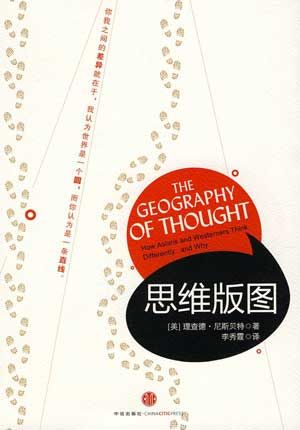
Title: Thinking Maps
Author: Richard E. Nisbett
Nationality: American
【reason】
"Mind Map" looks very similar to "Mind Map", but it is not a "small paper" like that at all. It is about how to understand the East and the West (mainly taking the United States and China, South Korea, Japan, and Singapore as examples) people. There are many interesting sayings about the cognitive phenomenon and thinking of different people. For example, from the perspective of linguistics, in terms of language expression, easterners almost always use "verbs", while westerners mainly use "nouns". This small book contains a lot of content.
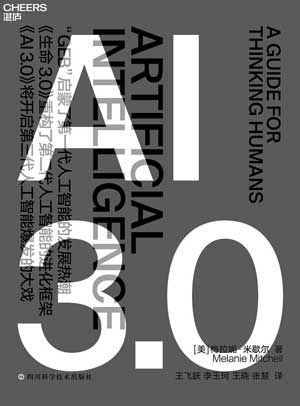
Title: AI3.0
Author: Melanie Mitchell
Nationality: American
【reason】
In "AI3.0", Michele recounts the evolution history of AI from the last century to this century from the beginning, starting from the "Turing Game" that inspired the development of AI. During this process, the development of AI has been promoted intermittently or delayed the development of AI with the introduction of various algorithms, or their comprehensive use, as well as the investment and withdrawal of funds. So how far has AI developed today?
Whether from mathematicians, computer scientists, moral philosophers, brain neuron scientists, programmers, etc., the development of artificial intelligence has always been a very single development, not as we or science fiction and movies imagined. That's enough to replace humans. Michelle's book is quite readable, almost all-encompassing, that is, it organizes the evolution history of artificial intelligence, and then conducts new six major problems on the basis of the ten major problems proposed by Hou Shida in "GEB". Ask yourself.
So, can artificial intelligence replace us as we thought? Make the vast majority of people unemployed? As far as the current development of AI is concerned, this assumption is still in the context of "fallacy". AI needs to develop as complex as the neurons in the human brain and have multiple judgment capabilities. As far as the data collected and input is concerned, there is no complete set of algorithms and standards that allow AI to process and judge things like humans.
As artificial intelligence researcher Pedro Domingo put it: "There are fears that computers will become too smart and take over the world, but the real problem is that computers are too stupid and they have taken over the world." The words put forward his own opinion: "I am worried about the lack of reliability of artificial intelligence, and I am also worried about how it will be used." Yes, using the long tail theory to analyze artificial intelligence, it is not difficult for us to find that many of its unreliability will occur, In addition to the errors of computer analysis and judgment, Hofstadter, Michel and even other computer scientists are also concerned about the potential risk of artificial intelligence being controlled by hackers. So should we be afraid or afraid of artificial intelligence?
The answer we can give so far is that computers are too stupid, and what we should be afraid of is humans themselves and how humans use artificial intelligence to perform various operations. Nor should we view AI with pessimism or over-optimism. It is foreseeable that artificial intelligence will continue to deepen in the future, but it should not be simply described as being able to replace some people or things. After all, no complex human being can be easily replaced by anything.
Like my work?
Don't forget to support or like, so I know you are with me..
Comment…